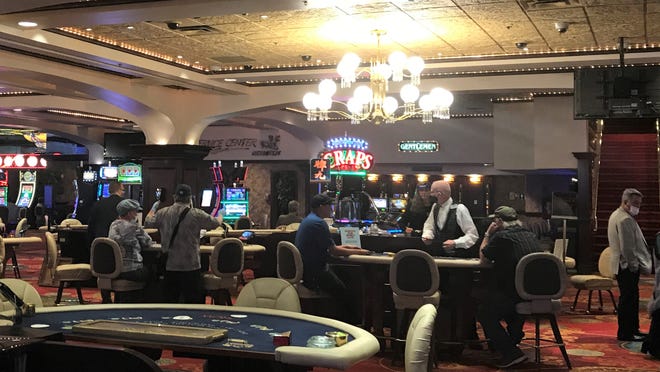Safest Form Of Gambling
- Mn Gambling Forms
- Safest Form Of Gambling Sites
- Safest Form Of Gambling Losses
- What Is Gambling
- Safest Form Of Gambling Winnings
According to a previous Gambling Commission report, 51% of Britons aged 18 to 24 take part in some form of gambling activity, with an ever increasing number of young people gambling. Yet, studies suggest that only 3-5% of those who do gamble have a serious problem with it.
The relationship between gambling and domestic violence against women September 2020: New research published today by ANROWS shows that while gambling does not directly cause intimate partner violence (IPV), it exacerbates it in serious ways. The study also highlights the prevalence of economic abuse among women experiencing gambling-related intimate partner violence. This is a different type of risk to the others discussed so far. It’s a very real risk though, and one you should definitely be aware of. A small percentage of people do get addicted to online betting, or at least experience some form of problem gambling. If you want to stay safe from these dangers, it’s VITAL that you gamble responsibly. The rules surrounding this form of gambling are a little murkier in California. Essentially, racing betting can only legally occur in the state if the betting is pari-mutuel.
The Gambling Act 2003 classifies gambling based on the amount of money spent and the risk of problem gambling associated with an activity. Classes of gambling range from Class 1, representing low-stake, low-risk gambling, to Class 4, which represents high-risk, high-turnover gambling. Casino operations and lotteries run by the New Zealand Lotteries Commission are treated as separate classes within the Act. The Act also defines Private Gambling.
- Class 1 and 2 Gambling
- Class 3 Gambling
- Class 4 Gambling
- Private Gambling
Class 1 and 2 Gambling
- No commission is offered or paid to, or received by a person for conducting the gambling
- No remuneration is offered or paid to, or received by a person for conducting the gambling, except a caller of housie or an authorised representative of a society
- The gambling activity must comply with the relevant game rules
- The gambling does not use a gaming machine either directly or indirectly.
Class 1 Gambling
- Prizes or potential turnover* for one session does not exceed $500 (The value of any non-cash prizes is the retail value.)
- If the gambling activity is run by individuals (e.g. office sweepstakes), all the profit (ticket sales less any actual and necessary expenses) must be used for the prizes
- If the gambling activity is run by a society the proceeds must be applied to authorised purposes (see: gambling proceeds)
- Does not need a licence
- The gambling activity must follow the relevant game rules
Class 2 Gambling

- Prizes for one session do not exceed $5000 (The value of any non-cash prizes is the retail value.). Potential turnover* in one session does not exceed $25,000
- Must only be run by a society
- The proceeds must be applied to authorised purposes (see: gambling proceeds)
- Consumer information must be clearly described at the point of sale (e.g. the name of the society, the authorised purposes, the number of tickets, the closing date for entries, the prizes (including their retail value) and when and how any draw will be made)
- Does not need a licence
- The gambling activity must follow the relevant game rules
Mn Gambling Forms
* For a lottery potential turnover is the number of tickets printed times the cost of a single ticket.
For a lottery potential turnover is the number of tickets printed times the cost of a single ticket.

Class 3 Gambling
Safest Form Of Gambling Sites
- Prizes offered or awarded in the gambling activity, or in one session of the gambling, exceed $5,000 (The value of any non-cash prizes is the retail value.)
- Larger-scale lotteries, housie, instant games and other forms of gambling such as 'gaming sessions (also known as 'casino evenings') are common forms of Class 3 gambling
- May only be run by a society (and in the case of regular gambling, such as housie, must be run by a corporate society)
- The gambling activity must comply with the relevant game rules
- Does not involve a gaming machine, directly or indirectly
- The Department of Internal Affairs must be satisfied that the activity is financially viable and the costs will be minimised and returns to the community maximised
- The purpose must be to raise money for an 'authorised purpose'
- Must have a licence.
Safest Form Of Gambling Losses
See: Fact Sheet 16 - Class 3 Questions and Answers
Class 4 Gambling
- Any activity that involves the use of a gaming machine outside a casino
- May be run only by a corporate society and only to raise money for authorised purposes.
Private Gambling
What Is Gambling
Private gambling is not a 'Class' of gambling. It is not covered by the 2004 game rules for each specific type of activity. However, it must comply with the definition in the Act or it will become illegal gambling and participants will be subject to the possibility of prosecution.Private gambling is gambling by persons at a private residence where:
Safest Form Of Gambling Winnings
- All the stake placed is distributed as a reward to the winners
- The gambling is, primarily, a social event or entertainment
- No remuneration, commission, or reward is paid to, or received by, a person for conducting the gambling
- Persons who do not live at the residence are not induced, formally or informally to participate in the gambling by advertisement, notice, or other means
- If the gambling involves playing or staking against a person who has the role of ‘bank’, that role passes from one person to another by chance or by regular rotation among all without charge or other conditions
- All participants have an equal chance of winning
- No person other than a participant has a chance of winning
- No one pays for admission, directly or indirectly
- There are no deductions of any kind from a participant’s stakes or winnings.